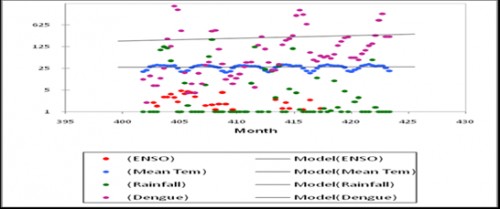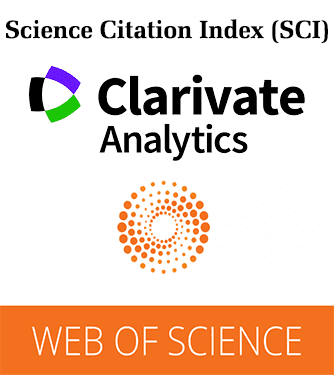Vol. 6, Issue 6, Part A (2019)
The impact of climatic influence on dengue infectious disease in Karachi, Pakistan
Author(s): Muhammad Ilyas, Shaheen Abbas, Sehar Afshan Naz and Mustansir Abbas
Abstract: Dengue fever, a viral infection caused by bite of an infected Aedes mosquito, has become a major concern for health authorities all over the world mostly in the tropical countries. This study is conducted to evaluate climatic influence on the outbreaks of dengue fever in Karachi city of Pakistan. The descriptive statistics and trend analysis are employed to investigate the impact of climatic variables in dengue fever outbreaks during the period of January 2001-December 2016. Time series plots are observed high in dengue incidences during the months of September to November, as well as kurtosis value for dengue (27.765 >3) suggested leptokurtic and increasing flattened tail for dengue with influence of climatic parameters. Trend analysis is used to fit dengue fever as a function of temperature, rainfall and ENSO 3.4 index respectively. The results stated that the months of September to November are peaked seasonal months for dengue outbreaks.
Related Graphics: Click here for more related graphics

Fig.: Trend analysis for monthly ENSO3.4 index, Temperature, Rainfall with Dengue counts.
Pages: 04-13 | 1280 Views 135 Downloads
How to cite this article:
Muhammad Ilyas, Shaheen Abbas, Sehar Afshan Naz, Mustansir Abbas. The impact of climatic influence on dengue infectious disease in Karachi, Pakistan. Int J Mosq Res 2019;6(6):04-13.







